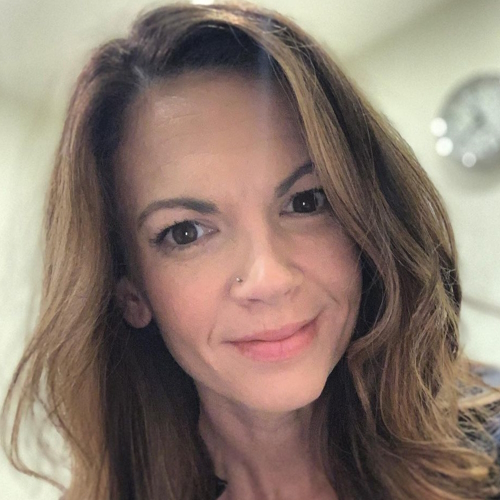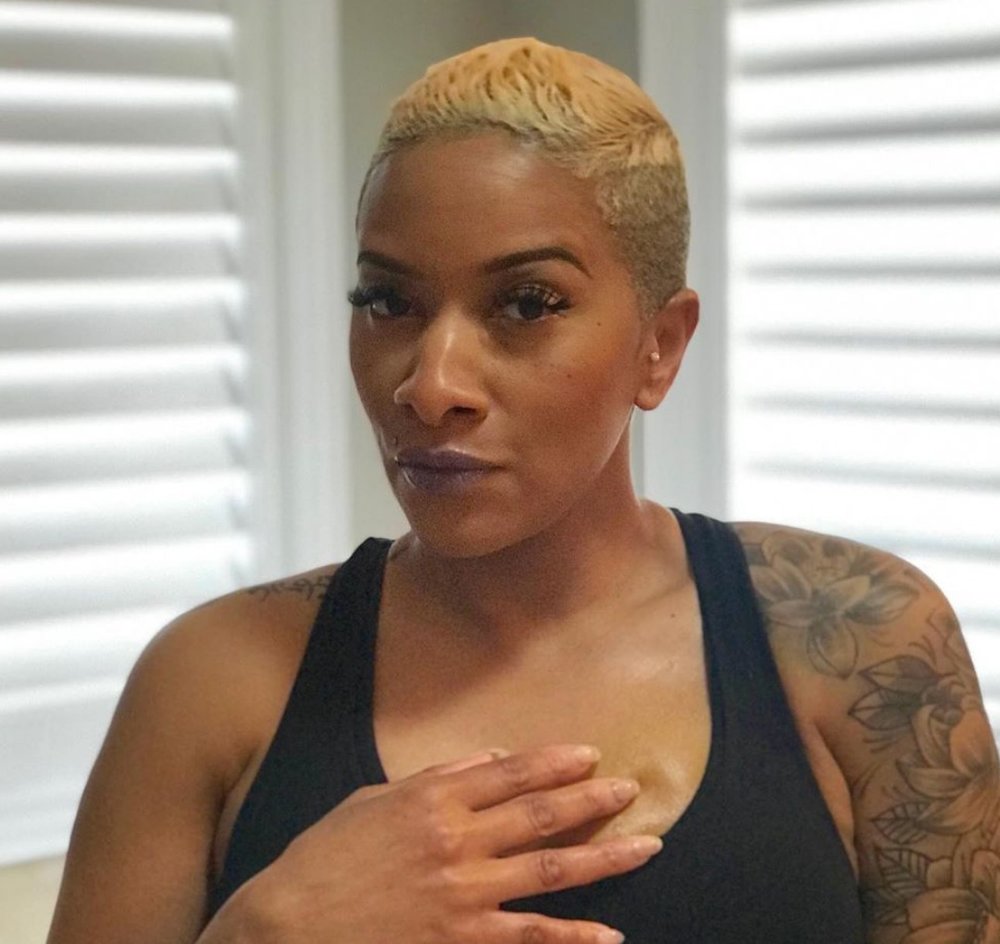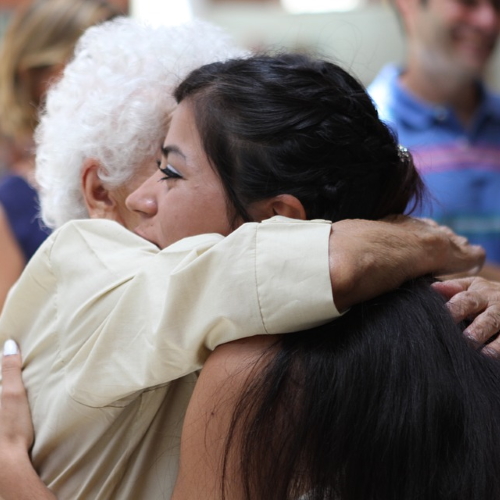Empowering Your Voice: Signs of Medical Gaslighting as a Cancer Patient

Nadia was repeatedly told, “Nothing was wrong with her.” Amy’s symptoms were consistently attributed to anxiety. Nick was told that he was too physically fit to be sick. Sadly, all three were eventually diagnosed with various types of cancer.
The term “gaslighting” has gained significant popularity in recent years, often used to describe situations where individuals manipulate others into questioning their own reality.
As a cancer patient, you likely trust your doctors and healthcare providers to provide the best care. Unfortunately, some patients experience medical gaslighting, a phenomenon where doctors or healthcare providers downplay a patient’s symptoms or dismiss their concerns.
Medical gaslighting can be devastating for patients and can lead to delayed diagnoses, inadequate treatment, and even death.

For a deeper understanding of the topic and how to manage it, we sat down with Dr. Jennifer Kilkus, a board-certified clinical health psychologist and an Assistant Clinical Professor within the Department of Psychiatry at Yale School of Medicine. Specializing in the mental health of oncology patients, she sheds light on gaslighting in the medical field and its impact on cancer patients.
In conversation, she discusses the origins of the term and how medical gaslighting manifests as a dismissal or minimization of cancer patients’ concerns. We explore medical gaslighting in the patient experience, its underlying biases, and the importance of slowing down, listening, and advocating for oneself in the face of dismissive medical encounters.
What is Medical Gaslighting?
Medical gaslighting is based on the concept of gaslighting, which originates from the movie Gaslight, where a husband manipulates his wife’s reality to make her doubt her own judgment.
Dr. Kilkus describes medical gaslighting as, “A minimization or a dismissal of people’s concerns. I think there are a lot of different contributors to it, but that’s kind of the general gist of it, is just a dismissal or minimization of what someone’s saying that they’re having an experience within a medical context.”
“I was so angry and resentful while starting treatment that my oncologist continued to gaslight me and ignore all of my cries for help. I felt like a crazy person. I often wonder, what stage would I have been, and would my journey have been different had the doctor believed me.”
Nick M. | Explore Nick’s Stage 3-4 Marginal Zone Lymphoma Story
To further clarify that medical gaslighting might not necessarily be attributed to malicious behavior, Dr. Kilkus says, “I wouldn’t put so much intent behind it.” She explains that as humans, we all have biases, misunderstandings, and time constraints that may lead to unintentionally gaslighting someone else.
Despite intentions, there are ways to spot medical gaslighting when you’re experiencing it.
Five Signs You’re Experiencing Medical Gaslighting
By understanding the signs of medical gaslighting, you can assert your needs, seek additional opinions, and ensure that you receive the care and respect you deserve. Here are a few situations that might clue you into medical gaslighting.
- Chronic pain dismissal: You’re experiencing pain, but your healthcare provider tells you that it’s “all in your head” or that “you’re exaggerating your symptoms.” Dr. Kilkus emphasizes that “people have wisdom about their bodies,” and patients should be persistent if something doesn’t feel right.
“I got an appointment with my primary care. I said, ‘These symptoms aren’t going away. In fact, everything seems to be getting worse. I’m really concerned.’ He said, ‘You don’t look sick. If you had cancer, Amanda, you would be losing weight at a rapid pace. Your face would be sunken in.’ I just couldn’t believe he said that to me.”
Amanda G. | Find out more about Amanda’s Stage 2A Colon Cancer Story
- Unexplained symptoms dismissal: You’re experiencing symptoms that your healthcare provider cannot explain, but they insist that there’s nothing wrong with you. Dr. Kilkus encourages patients to educate themselves about their condition and seek a second or third opinion if necessary.
- Dismissal based on age: You’re experiencing concerning symptoms or pain but your healthcare provider asserts that you are too young to get cancer. “That is a really common thing that I hear is ‘you’re too young to have cancer’,” says Dr. Kilkus. “You’re too young to have this kind of pain. You’re too young to have these kinds of problems. It must be anxiety or it must be X, Y, or Z thing.” She explains that people experience pain at all ages so this phrase is a really big sign. Again, Dr. Kilkus recommends getting a second opinion.
- Immediately blaming symptoms on mental health issues: You’re healthcare provider quickly attributes your symptoms to anxiety or stress. “If somebody is having a symptom that is medically concerning to them, of course, they’re going to be anxious about it,” explains Dr. Kilkus. “And it is true that anxiety can exacerbate symptoms or kind of mask what is really going on. But that doesn’t mean, that it shouldn’t be followed up on, because we also know that there are medical conditions that can cause symptoms that look like mental health concerns.”
“When I went back to that doctor for the follow-up, he said to me, ‘Yeah, there’s nothing wrong with you. You must have just had an infection.’ I tried to tell him, ‘No, wait, there’s more I’m concerned about.’ These rashes and things were starting to cause alarms to go off. Anyway, he cut me off, and he said, ‘I can tell that you’re just one of those anxious patients who needs a little more coddling.'”
Nadia K. | Explore Nadia’s Small Lymphocytic Lymphoma with Unmutated IGHV Story
Who Experiences Medical Gaslighting?
According to Dr. Kilkus, “One of the things that is fairly common is that women and people of color are more likely to experience medical gaslighting.” She further explains that this is due to societal narratives and stereotypes surrounding how women and people of color present with pain.
Dr. Kilkus highlights the bias that “women might be more anxious and they’re saying they’re in pain, but actually maybe, maybe it’s anxiety and it’s not actually pain.”
She also addresses the harmful stereotype that “people of color have a higher pain threshold than white people.” A 2016 study found that some medical students still think black patients feel less pain than white patients.
Dr. Kilkus emphasizes the need for awareness and self-compassion, stating that “it’s not conscious, it’s sort of unconscious biases that we all hold” and that experiencing medical gaslighting is not exclusive to certain individuals.
“The other thing I want to make sure that people hear is that this doesn’t just happen to women and people of color. It happens to everyone,” explains Dr. Kilkus, “It’s just more likely to happen to those populations or for people who have certain disabilities, people have certain chronic health issues, people who have difficulties with their weight. These are all sort of more vulnerable to medical gaslighting. But it can happen to anybody. It can happen to the most well-educated white male person that there is. It just can.”
“It was a little intense because I feel like I could feel him saying it’s so unlikely that this is colon cancer, especially colon cancer that’s causing you to bleed. But the alarms in my body and my mind were going off. I remember there was a point where it was like, ‘Either put me on the schedule or just call your security and they can escort me out because I need this colonoscopy.’”’ He was like, ‘Whoa, whoa, whoa, Miss. It’s okay. I will give you the colonoscopy.'”
Amy H. | See Amy’s Stage 3B Colorectal Cancer Story
What to Do if Your Doctor Dismisses You
If you find yourself being gaslit in a medical setting, Dr. Kilkus suggests simple ways to get your doctor to listen.
- Ask your doctor for documentation: “It’s perfectly okay for you to say, ‘If you’re not going to follow up on this, then I would like you to document that in my medical record,’” says Dr. Kilkus. She explains that it might clue in the doctor that there may be a negative consequence of them not acting on your symptoms. For follow-up, Dr. Kilkus recommends looking at your medical notes to make sure it’s been added.
- Keep a diary: “To keep track of symptoms and that could be duration, intensity, and frequency of symptoms,” says Dr. Kilkus “And that way you have that data to provide the physician. So they also know what has changed since the last time you came to them.”
- Find a doctor you trust: I’m a huge fan of people finding other physicians if they don’t feel supported because there’s no point if you don’t have a doctor you can trust,” says Dr. Kilkus. “I really feel like that’s a foundational component of health care. And if you don’t have that, then you need to find a way to at least get as close to that as you can.”
Download 5 Tips For Overcoming Medical Gaslighting
Cancer Patients & Experts Share Their Best Advice for Overcoming Medical Gaslighting
Empowering Cancer Patients through Self-Advocacy
One of the most effective ways for cancer patients to protect themselves from medical gaslighting is through self-advocacy. This means being an active participant in your own healthcare, asking questions, and speaking up if you feel like something isn’t right. Dr. Kilkus also recommends reaching out to your community or support network to find doctors who others have connected with.
“You’re not just a number. These doctors have a lot of patients, but you’re a human. You go in there and let them know you’re not a number. You have concerns about your health, and your doctors should be concerned about you..’
Natalie W. | Natalie’s Stage 0 ER+ DCIS & Paget’s Disease Breast Cancer Story
A crucial component of self-advocacy is education according to Dr. Kilkus. “The more information that you have, the more seriously you’re taken to in a health care setting,” says Dr. Kilkus. To better understand your rights as a patient, you can explore the Patient Bill of Rights. These also vary from state to state.
In addition to education, taking a compassionate approach can be helpful in your patient journey. “We all share challenges and experiences that we often feel like we’re walking with alone,” says Dr. Kilkus. “And I really feel like the more that these things are voiced, the easier it is for everyone to just slow down and be kind to one another because we’re all suffering. That’s part of being human.”
More Stories On Navigating Cancer









